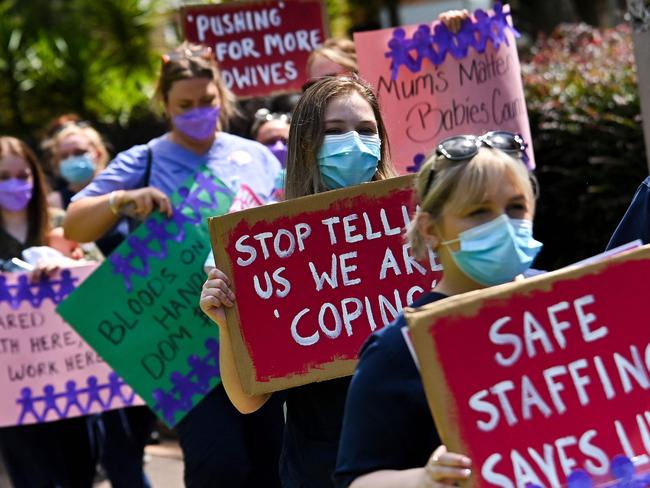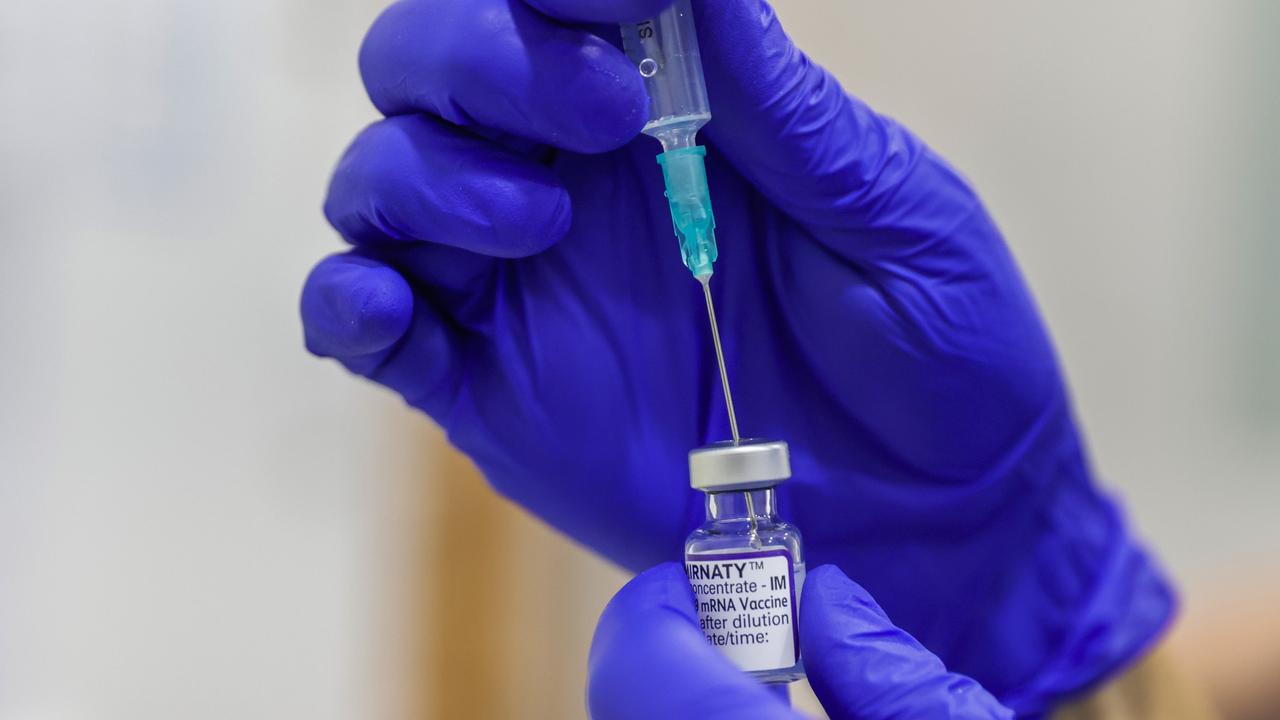NSW healthcare workers ‘driven to tears’, suffering depression, anxiety and burnout battle COVID-19 pandemic
Frontline healthcare workers -- driven to quit -- have been crushed by the relentlessness of the COVID-19 pandemic, often bursting into tears at the start of shifts. One nurse has described it as ‘the hardest two years of my life’. Should nurses get a pay rise? Vote now.
NSW Coronavirus News
Don't miss out on the headlines from NSW Coronavirus News. Followed categories will be added to My News.
The Covid pandemic has left healthcare workers with dangerous levels of depression, anxiety, sleep problems and stress.
A review of 14 separate studies on the mental health impact of the pandemic on healthcare workers published by the NSW Covid-19 Critical Intelligence Unit found the risk of depression ranged from 12.1 per cent to 55.9 per cent and anxiety 23.2 per cent to 67.6 per cent.
The findings come as nurses and midwives plan to walk off the job for 24 hours on Thursday to protest the “ongoing staffing crisis inside public hospitals”, the NSW Nurses and Midwives Association announced Saturday.
The review found healthcare workers fear for their own and others’ physical safety through infection, worry about inadequate personal protective equipment and resourcing and struggle with high workloads and long shifts.

Another study of 1000 nurses by the Health Professionals Bank and Australian College of Nursing showed after two years of Covid-19, almost seven out of 10 reported experiencing fatigue and burnout, while a quarter experienced mental illness or distress.
More than a third wanted greater mental health support.
Hayley Chandler always dreamt of being a nurse but after four years – two working on the frontline of the pandemic – she is leaving.
“Emotional, physical and mental burnout is pretty evident. We worked longer hours, longer shifts back to back, it catches up with you and it has burnt me out, so I have decided to change professions,” the 26-year-old from Sandy Point said.
While still working as a casual nurse, she is now studying law.
She is not alone in leaving. The NSW Nurses and Midwives Association (NSWNMA) reported a surge in retirements last year of 500 more than the previous five years.
“I saw it in my colleagues as well as myself, some would turn up for handover and just burst into tears,” Ms Chandler said.

The Covid wards were at another level.
“Normally I’d see two or three patients on oxygen but, on the Covid ward, every single patient was on it and their management required more routine observation and more time and concentration,” she said.
“The phones were constantly ringing from families wanting updates, you don’t want to rush and do things properly but, on a 20m ward, I could do 16km in a day chasing things up.”
Got a news tip? Email weekendtele@news.com.au
Another Sydney nurse who asked not to be named because he was still employed said he could no longer work full-time and was moving into teaching.
“In the last two years, so many have left because they couldn’t do it anymore. I can’t do full-time any more, it’s just too much,” he said.
“I’m completely burnt-out. I don’t know a nurse who isn’t burnt-out. It’s been the hardest two years of my life.
“Nursing is hard enough as it is but the stress and lack of support was hard. I’d say we are leaving in record numbers.”
In rural and regional areas, hospitals are running “on overtime and the grace of nurses staying back who are tired and burnt-out” according to Tamworth nurse Jill Telfer from the NSWNMA.
“We were short-staffed before Covid and people feel they just can’t keep it up, some colleagues of mine have got jobs elsewhere outside the public health system,” she said.
NSW teachers are suffering similar pressure because of COVID-19, with remote schooling and lesson planning, and an increase in the amount of time spent away from the classroom teaching.
Kogarah High School principal and NSW Teachers Federation executive member Julie Ross said increased demands were making it harder to find and retain teachers.
“We’ve had situations where we’ve had to advertise a number of times for a couple of positions and we may only get one application,” Ms Ross said.
“I’m also having conversations with people who have been in the job for life who are now looking at other opportunities because it’s not sustainable.
“Since the pandemic this has only escalated with teachers saying: ‘I can’t do this any more’.”




